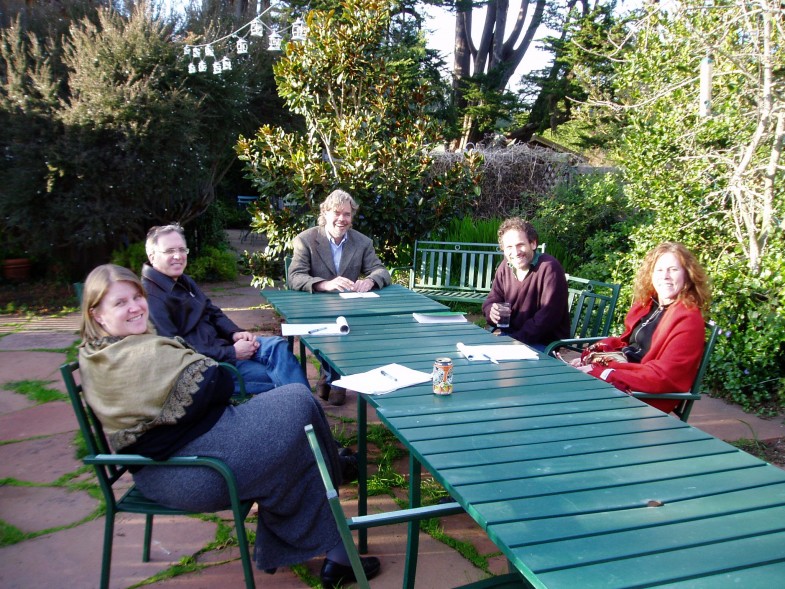The sun is setting above the forested hills of the estuary and the golden light streaks through the windows of the Old Schoolhouse Bed and Breakfast in Point Reyes Station, CA. I am here with 25 other artists, writers, organizers, activists, musicians, and educators for the annual gathering of the On the Commons to discuss our individual projects and evolve the vision of how the commons can thrive.
Over the past year, I have been working with Peter Barnes on climate change policy and have come to understand more fully how the commons is an essential component of our collective human culture but has been under appreciated and under supported. Until this weekend, though, I haven’t had the chance to meet the other thinkers and activists that comprise the commons family, many of which have been working together for decades.
For the weekend workshop, we’ve adopted the theme of jazz music as a way to envision the improvisation, free association and collaboration we hope will spark the creative process. Everyone is enthusiastic and engaged, sharing ideas and experiences, finding new connections in our work. There is excitement about changing the name from the Tomales Bay Institute to the On the Commons. There is also talk about the new website, where you’re reading this post.
During the morning we had a chance to have a group jam session, where ideas were tossed around and conversation flowed fluidly. Harriet Barlow, one of the original founders of the Tomales Bay Institute seven years ago, asked how we can better discover the commons that are all around us. “How do we inspire each other to see it, name it, claim it and preserve it?”
Dave Mann, in a presentation on his work with popular education, asked what the world might look and feel like “if the dominant paradigm was the commons. In the current market paradigm we have competition, exclusivity, private ownership. We relate to each other with an underlying sense of scarcity.” We had an engaging discussion on how we could reshape our worldview to be life affirming and community based.
Chuck Collins talked about his work to support the estate tax as a means of preserving the financial wealth that is derived from our common economic infrastructure. “Right now,” he said, “there is an effort to eliminate the estate tax so that private wealth will become further and further concentrated. In essence, the political right would like to diminish our collective wealth, transfer our debt to the future generations, which, of course, will leave them in a very tough situation. I like to call it “Shrink, Shift and Shaft.’” A lively conversation ensued on how best to use revenue from an estate tax. What is the best political strategy? Would it be wiser to direct revenue toward social security, public education, or some other program that would promote the public good?
In the afternoon, we broke into brainstorming sessions to explore the immediate and long-term opportunities for commons work in our world. Topics included: health and healthcare; water access and preservation; food and local resources; individual wealth in the commons; the upcoming political transition and how to move forward in that window of opportunity.
I joined Kathleen Maloney, Cynthia Guyer, Vernon Green, Alexa Bradley and Peter Barnes in a discussion on the role of government in developing the commons. We sat at a bright green table by the chicken coop. The elegant looking birds squawked and preened as we talked. How do we work towards increasing public engagement in our local politics and beyond? Is there a way to empower self-organizing groups to develop common resource trusts? Are public charter schools a model for what is possible in the next phase of expanding the commons? How do we approach the daunting challenge of the “invisible governance” of private corporations in our political system? I realized that asking the right questions is the essential first step in discovering solutions.
In just the past 24 hours, my understanding of the commons has been transformed. I feel blessed to find myself in a community of people who have committed their lives to promoting common wealth for the common good. Most of all, it gives me hope that the commons is rising; that the movement is finding its groove.



